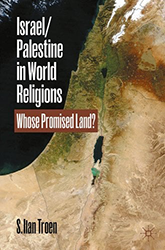Islam and Germany’s War by David Motadel is an important contribution to our understanding of the relationship of Nazi Germany to the Islamic world. Motadel, a research fellow in history at the University of Cambridge, notes that the efforts of Hitler, Himmler, and others in the Nazi hierarchy to forge an alliance of Muslims against the Allies were based foremost on strategic concerns, not ideology. Unlike its anti-Semitic racial policies, there was a lack of anti-Islamic attitudes among the regime’s leadership. In fact, in their efforts to win over the Muslim world, the Nazi leadership prohibited the use of the term anti-Semitism and made it clear that it did not apply to non-Jewish Semites. Furthermore, Hitler admired Muslims over Christian devotees, due to their “exhortation to fight courageously because they were promised a paradise peopled with houris, where wine flowed in streams — a real earthly paradise.” Christianity, Hitler stated, promised nothing comparable: “The Christians… declare themselves satisfied if after their death they are allowed to sing Hallelujahs.”
Much of Motadel’s book describes the manner in which Nazi propaganda attempted to recruit Muslims in the Balkans, Southern Russia, and North Africa. Repeatedly, the Nazi propaganda machine emphasized that the Jews were behind the hated Soviets, the British, and the United States, a refrain which continued throughout the war. Emphasizing the anti-Jewish passages in the Koran, Nazi writers stressed that Judaism had been the arch enemy of Islam since ancient times. Drawing on their hatred of Jews, they connected Judaism and Bolshevism and argued that, “The Jewish mentality created Bolshevism and Bolshevism is the carrier of the Jewish mentality. Made by Jews, led by Jews- therewith Bolshevism is the natural enemy of Islam.” Elsewhere, Nazi writers pointed out that the idea of the caliphate was nothing less than the “Fuhrer of the believers.”
By focusing on Islam, the Nazi leadership rationalized and avoided the ideology of Aryan supremacy. From the German perspective, it seemed most efficient to encourage Islamic practices, and to make wide-ranging provisions for food and drink. Exceptions were made for Muslims to perform their religious rituals and obligations, including the Muslim practice of ritual slaughter. Himmler lifted the ban enacted in April, 1933 when, in attacking Jewish religious Shechitah practices, they decreed the anti-Semitic Law for the Protection of Animals.
Were the Nazis successful in their efforts in recruiting Muslims? Somewhat. In the Balkans the Muslim Handzar division was involved in the slaughter of Serbs and Jews, whereas in the Crimea, the Caucasus, North Africa, and the Middle East, the division was less successful. Following the War, former Handzar soldiers fought in the 1948 war against Israel.
Related content:




